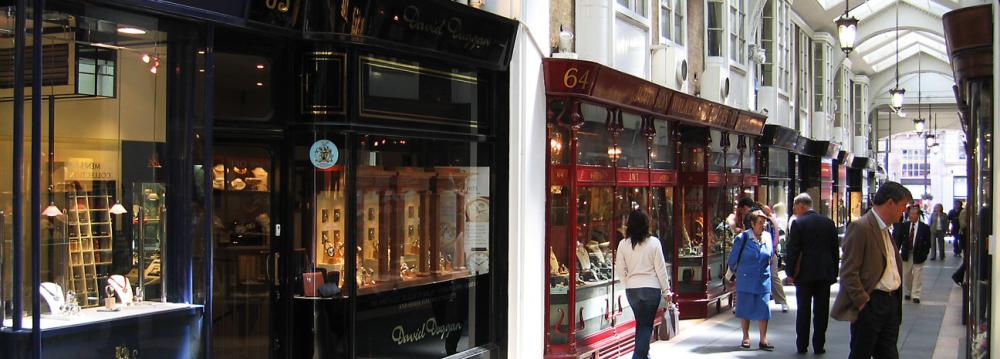The squeeze on household finances risks dragging Britain close to recession, economists warned Thursday after official figures revealed a collapse in consumer spending that threatens to cripple growth.
Consumption grew by 0.1% in the three months to June, the weakest quarter since the end of 2014, the Office for National Statistics said as it left its initial estimate of 0.3% GDP growth for the period unchanged, news outlets reported.
The Confederation of British Industry’s monthly distributive trades survey, revealed a surprise contraction in retail sales in the year to August and plans by shops to lay off staff. “Retail sales have cooled as higher inflation continues to squeeze consumers’ pockets . . . Deteriorating sentiment regarding the business situation has combined with falling headcount among retailers,” Anna Leach, CBI head of economic intelligence, said.
Economists said the data proved that households are reining in spending as inflation outstrips wages. Pay has shrunk in real terms for three months running and a reprieve is not expected this year.
A collapse in consumption, which accounts for almost two thirds of economic output and has been the main engine of growth, would deal the UK a devastating blow, they added.
Business investment has also stagnated and trade added nothing to growth, leaving the economy struggling to keep up momentum.
GDP to Fall
Barclays is forecasting GDP growth of only 0.2% in the third and fourth quarters and Fathom Consulting, an economics firm, said there was a greater-than-evens chance of a technical recession over the next year, BusinessLive reported.
The EY Item Club predicted that “weakened consumer spending will continue to hold back growth in the third quarter”.
Moody’s investors service, a division of the credit rating agency, said: “A prolonged moderation in consumer growth and a stagnating housing market are among the key concerns for the economic outlook.”
A consumer confidence poll by YouGov and CEBR found that job security was strong but household finances declined for the fifth month in a row, the longest run of negative readings in the eight years the survey has been running. Completing the bleak picture was business investment, which came to a standstill in the second quarter, according to the ONS.
A slowdown in consumption and business investment has been further expected because of the collapse in the pound and heightened anxiety since last year’s Brexit vote. However, hopes for a resurgence in factory exports have been misplaced.
Brexit Worries
The UK economy grew at half the rate of the eurozone’s during the second quarter of the year, as a Brexit-fuelled jump in inflation dealt a sharp blow to consumer spending.
Britain started formal talks to leave the EU in June, but businesses have complained that progress appears slow in light of the fixed deadline to leave in March 2019. EU negotiators want agreement on membership dues, existing EU immigrants’ rights, and Britain’s land border with Ireland before starting more substantive talks on future trade arrangements later this year.
The uncertainty and the weaker pound were also taking a toll on EU workers in Britain, who are crucial to some sectors. Other official data on Thursday showed net migration to Britain fell to a three-year low of 246,000 in the 12 months to March, as fewer EU immigrants arrived and growing numbers left.
British farms, food processors and restaurants—which all rely heavily on migrant workers—also complained on Thursday that they faced labor shortages.
Red Flag
UK employers are growing increasingly worried about the economy, new research has found. A survey of 601 employers by the Recruitment and Employment Confederation found 31% expect the economy to worsen, with only 28% expecting it to improve. Employers' confidence has worsened since the last survey in July, BBC reported.
REC chief Kevin Green said the decline should "raise a red flag" and called for greater clarity over Brexit.
"The jobs market continues to do well despite growing uncertainty," he said. "Businesses are continuing to hire to meet demand, but issues like access to labor, Brexit negotiations and political uncertainty are creating nervousness."
The REC's measure of confidence has turned negative in the space of a month. In July the number of those employers who felt confident about the economy outweighed the pessimists by 6 percentage points.


